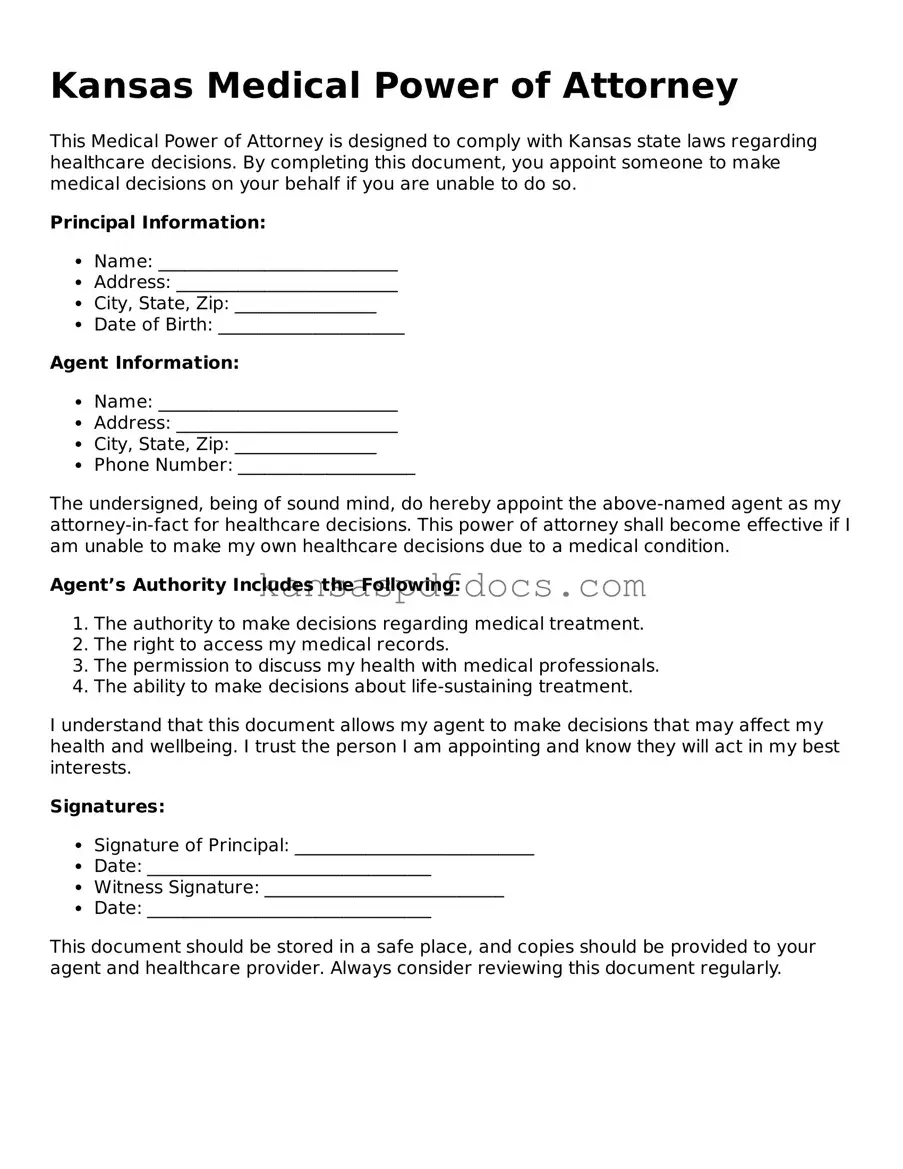Valid Medical Power of Attorney Template for Kansas State
A Kansas Medical Power of Attorney form is a legal document that allows you to designate someone to make healthcare decisions on your behalf if you become unable to do so. This important tool ensures that your medical preferences are honored, even when you cannot communicate them yourself. Understanding how to properly complete and utilize this form can provide peace of mind for you and your loved ones.
Access This Form Now

Valid Medical Power of Attorney Template for Kansas State
Access This Form Now
Your form isn’t ready yet
Edit and finalize Medical Power of Attorney online without printing.
Access This Form Now
or
Get PDF Form
